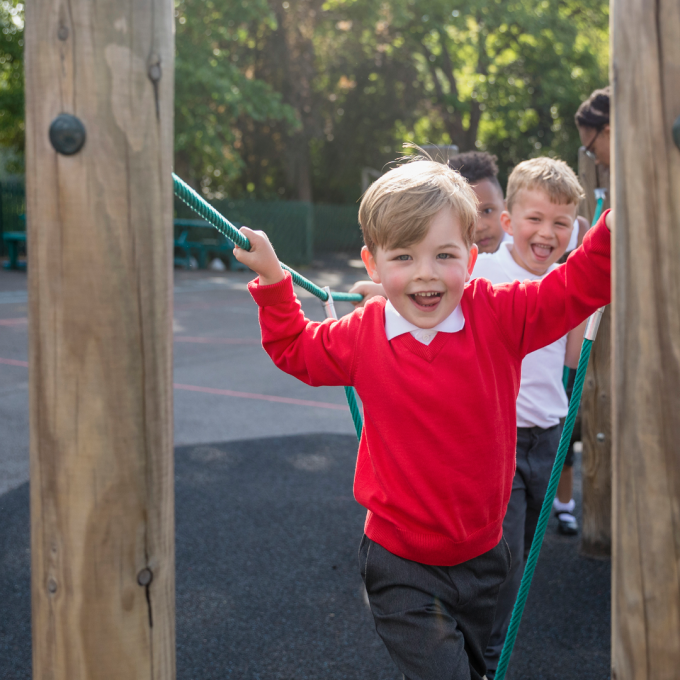Navigating the exam period can be extremely difficult for everybody involved. When levels of stress are increased by examination deadlines, we need to support our young people, teachers, parents and carers in order to safeguard wellbeing.
It is important to remember that our stress response, at a healthy level, helps us to perform under pressure, such as in exams. Exam periods can be long, which is why we need to think about how we can help young people cope effectively with the inevitable stress. Acting as a buffer by providing supportive relationships, we can help young people tolerate the increased stress and help prevent it spiralling into an excessively high level of 'toxic stress'. This toxicity can severely impact our mental and physical health.
When we are stressed, we can be more easily triggered into flight, fight or freeze responses. These subconscious survival responses are designed to keep us safe but when we're triggered by exams they can have a huge impact on our ability to do our best. It is important to know that it is normal for teenagers to be triggered into fight, flight or freeze more easily and more often. This is due to normal changes in the adolescent brain including the brain's 'threat detector', the amygdala, becoming more sensitive compared to in childhood and adulthood.
We might notice this particularly during examination periods; young people may have shorter tempers, become irritable or feel low. Look out for pupils who may be triggered into the freeze response by exam stress. Rather than exhibiting large expressions of emotion, they may appear withdrawn and become unable to engage. They may feel sick or want to use the toilet a lot. You can find out more about the survival responses here.
Advice for teaching staff
Anything you can do to reduce their baseline stress levels will help them better tolerate what's ahead. You could think about the following in your setting:
- Show plenty of warmth and compassion, letting them know that you will be alongside them to support them.
- Are your pupils able to have breakfast before coming to school? Consider breakfast clubs and providing extra snacks to make sure nobody is working on an empty stomach.
- Encouraging pupils to use breathing exercises, such as five finger breathing, during revision lessons, will give them techniques during the actual exam to help them, too.
- Provide basic materials, such as pens, pencils and calculators for those pupils who may not arrive to the exam or revision sessions prepared, rather than adding to their stress by telling them off if they haven't brought what they need. Use this same reasoning to be lenient around school uniform.
- Can you facilitate creative and expressive outlets for stress reduction? Open the art room, music space or drama department at lunchtime and let them create, play loud music and express their emotions. Encourage outdoor activities and sports to let them burn off excess pent-up energy in a healthy way.
Advice for parents and carers
- During the revision and exam period, consider being lenient about snacks and meals. What are their favourite foods? Keep the fridge well-stocked.
- Encourage them to spend time with friends, whether they meet up or have telephone calls. Staying connected with their friends during this time can help to lessen the effects of stress considerably.
- The adolescent sleep-cycle is different to that of children and adults - read our blog describing these differences here. To support this, become more lenient with bedtimes during the Easter break and/or revision period. Revising in bursts from midday until midnight may be far better. If you loosen rigid ideas around 'appropriate bed times' you can really help productivity.
- Lastly, encourage your children to do the best they can. Try not to nag. You are aiming to support them with their stress, rather than creating more stress. Your love is unconditional and doesn't rely on top grades. Your job is to encourage and not frighten them.
Looking after yourself
Remember, as much as you're there to support the young people you teach, parent or care for, it's essential you do not neglect your own needs at this stressful time. You can do this by concentrating on your own health and wellbeing. Simple things like getting enough fresh air, making time for the things you enjoy and spending time with people that positively impact you will all help you to de-stress. You will be far better able to make a positive impact if you're feeling relatively calm and positive.
Over to you
Reduced anxiety and behavioural incidents. Calmer classrooms filled with engaged leaners. Improved relationships with parents and carers. These are just some of the outcomes reported by settings embedding Thrive’s whole-school approach to mental health and wellbeing. Are you ready to join them? Click here to get started.
Pass it on
Small actions can lead to a big ripple effect. If you enjoyed this post or found it helpful, please consider supporting us in our mission to help every child and young person feel safe, supported and ready to learn by sharing it using the social media buttons below.
Want to join a like-minded community of senior leaders and classroom staff benefitting from insights and strategies to improve attendance, behaviour and attainment? Add your email address below. (It’s easy to unsubscribe).




_680.jpg)

